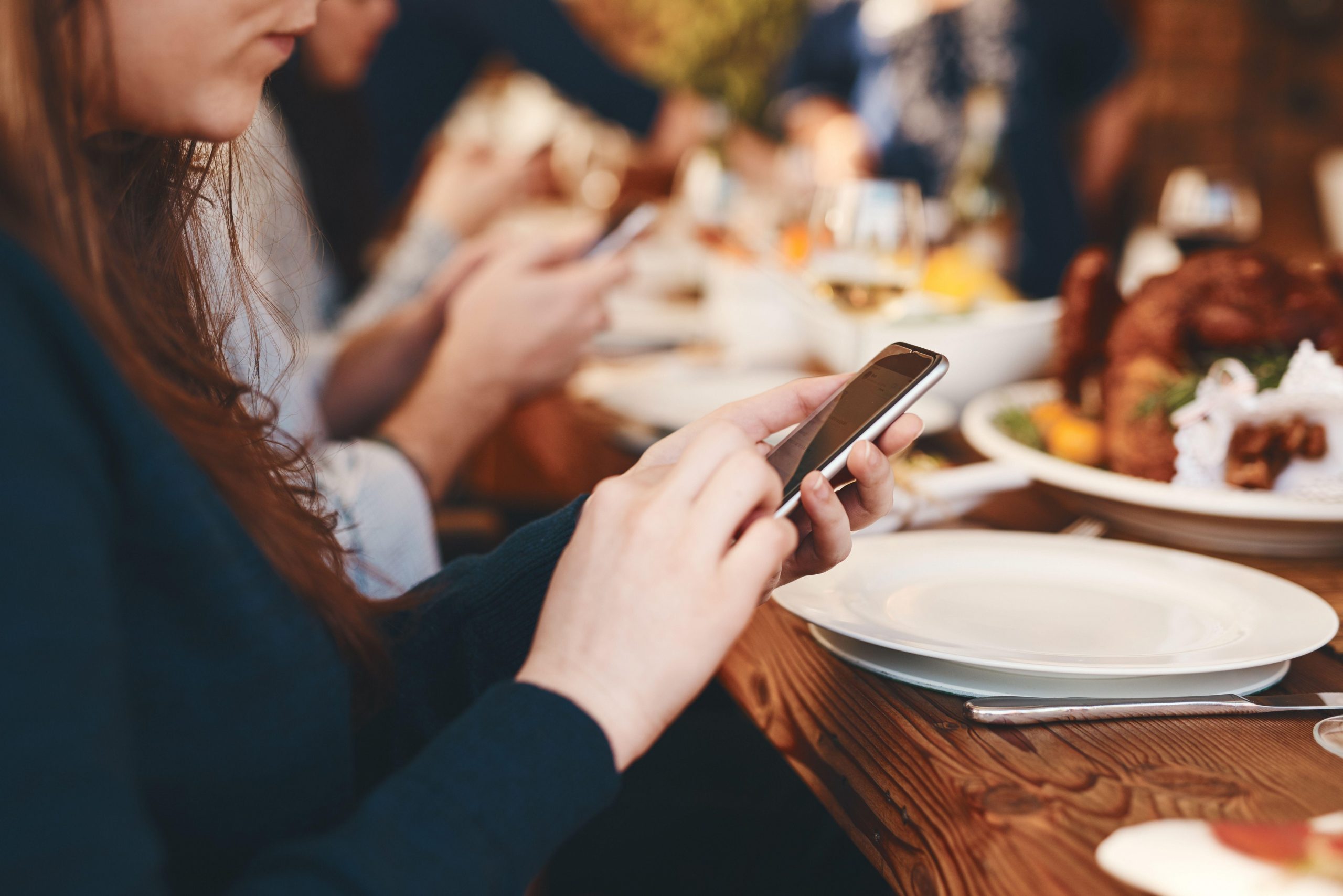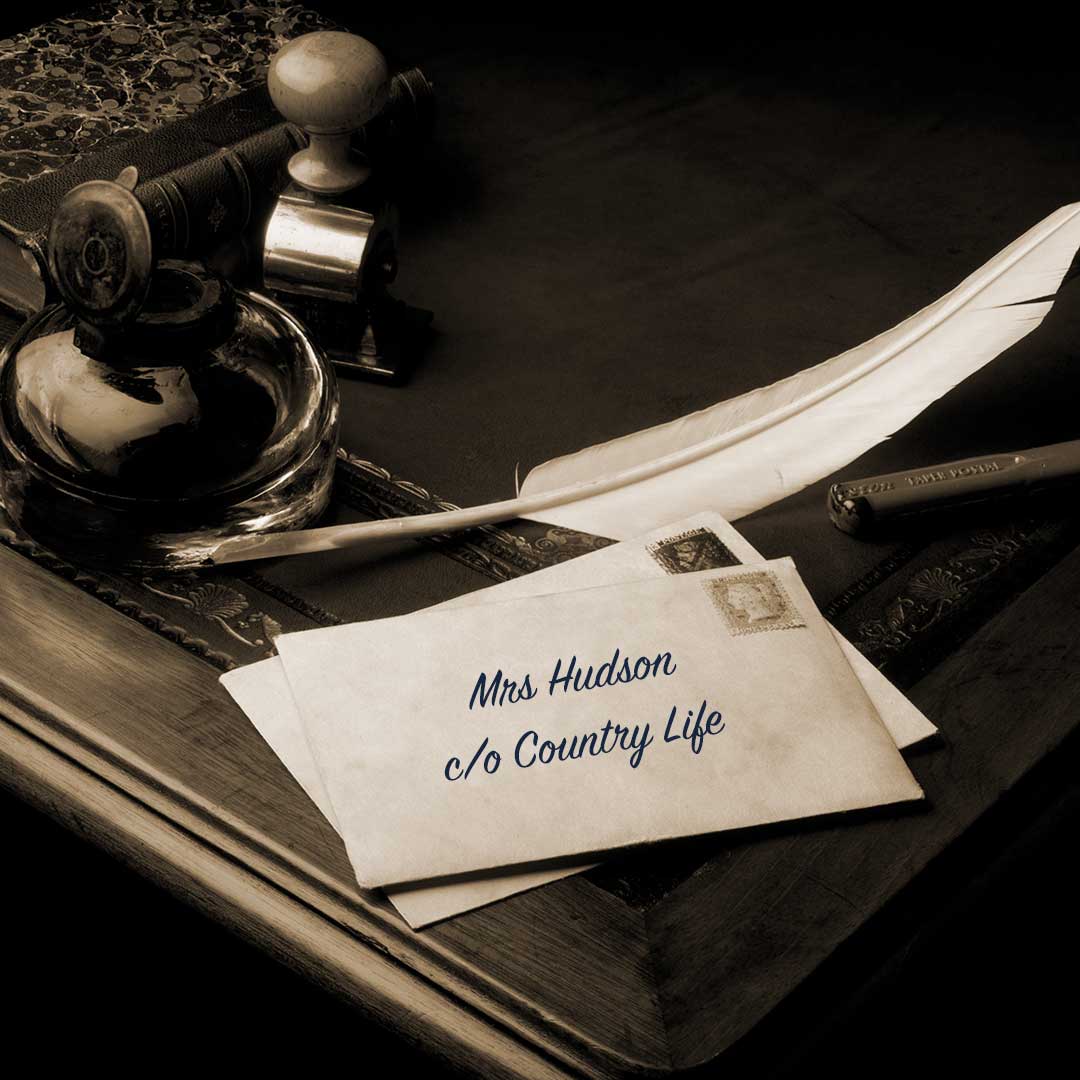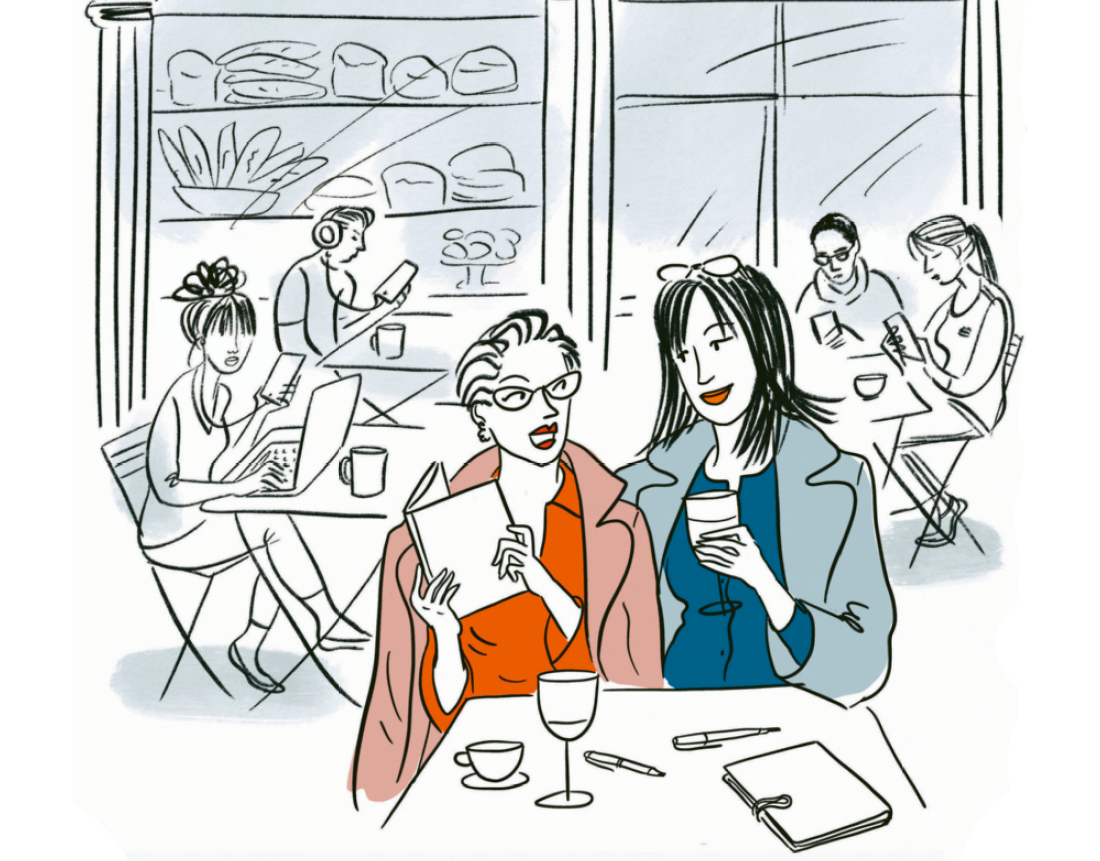The new rules of dining etiquette, from elbows and mobile phones to sex at the dinner table
Formal dining is no longer the minefield it once was. Annunciata Elwes identifies points of etiquette that have been dispatched, retained, revised and added.


Keeping up with appearances? Like language, acceptable table manners adapt over time, and while some remain a staple of good behaviour, others have not stood the test of time. We reveal the behaviours that can be ditched, those that may need tweaking, and the habits which very much remain correct — plus a few new ones you may wish to adopt.
Dispatched
Assisted seating Any woman who has had her knees clumsily banged against a table leg as a well-meaning neighbour repeatedly bashes a chair against her bottom will agree that the custom of helping the ladies into their seats can take a back seat. It’s polite to pull out a chair, but the guardsman’s habit of tucking in is only really appropriate for the aged or infirm.
Gender symmetry
With gender fluidity, same-sex or opposite-sex couples, the traditional male/female placement makes table plans a little complex. What’s more, the idea that men will be happiest chatting only to women and vice versa is outdated; flirtation and good conversation do not discriminate. That said, never place couples next to each other. No one should be holding hands under the table — the goal is to socialise, make others feel comfortable and to be good company.
Arcane cutlery conventions
Debrett’s is full of bizarre advice, such as consuming a pear with a teaspoon and only ever eating asparagus with your hands (what about the buttery fingers?). The ‘correct’ usage of a soup spoon (ladled backwards) is another moot point. You’ll look like a purist and purists aren’t sexy. Nor are flying peas — pronging is a dangerous habit. When wielding cutlery, follow your better judgement.
The no-elbows rule
This is a hard and fast rule for some. But let’s give it the shove. One elbow on the table, chin in hand, when talking seems comfortable and appropriate. Two elbows as you lean forward to hear the person opposite is equally acceptable. But it must be elegantly done, with consideration for one’s neighbours. If the table is crowded and you’re taking up space with your elbows or gesticulating so much that you exclude someone, don’t do it.
Retained
The left-and-right rule
Since time immemorial, the custom has been that men talk first to the person on their right and women to the person on their left (although this will have to be flexible, according to the discarded rule above). Then we all switch with every course, with things relaxing a bit after the main — thus ensuring that nobody feels conversationally marooned or monopolised (no matter how attractive or scintillating).
Leave of absence
It’s rude to leave the table before the main course has been taken away — that’s the rule and we stick by it. Whether it’s to smoke, secretly check the football score or visit the loo, please restrain yourself until the appropriate time. No one wants to talk to an empty chair at the start of a meal.
Exquisite houses, the beauty of Nature, and how to get the most from your life, straight to your inbox.
Revised
Dress codes
It’s the host’s call, but smoking jackets and smart chinos (also known as ‘Gloucestershire half dress’) are a good 21st-century alternative to black tie. They also ensure you don’t look as if you’re going to an awards dinner. Other good options include Nehru jackets. Smart trainers are fine and look good with dresses, too. We might have left the EU, but we need to learn from our Continental neighbours that it is possible to be both smart and comfortable.
The religion, politics and sex ban
Monologues on the first two remain off limits (there are enough opinions on social media), but the British are now no longer terrified of acknowledging that sex exists. Whatever the subject, the only proviso is that one should never be a bore; always read the room and seek both to listen and to entertain.
Added
Children
Yes, parents need child-free time and kids’ tables are great. But let’s also include children in our ‘grown-up’ placement as much as possible, perhaps not at very formal occasions, but at least a little more so than we did in the past. Their worlds are so virtual now that it can only be good for them to sit and talk.
Technology
Unless you’re a doctor on call or there’s a babysitting emergency, mobile phones have no place at a dinner table. Even face down, they are a distraction to which it is all too easy to succumb. Let’s rely on our storytelling — and, indeed, listening — skills, rather than googling the answers to questions and amusing videos. No one wants to see photographs of your holiday, either, however spectacular.
Smoking
Unless your hosts are smokers, don’t ask to smoke indoors these days; no one should feel obligated to say yes. Alfresco cigarette breaks should be limited to pairs to avoid breaking up the jolly throng.

Is it ever okay to put ice in your wine? How can you fix a broken friendship? And which cutlery do you use for fish? — Country Life's agony aunt Mrs Hudson tells all

Credit: Alamy
Curious Questions: Why are Christmas cracker jokes so corny?
With the dust having settled on Christmas, there is only one question left to ponder: why are the jokes in

39 steps to modern manners for the post-Covid world, from Zoom etiquette to thank-you notes
Debora Robertson and Kay Plunkett-Hodge set out to write a book on modern manners just before the pandemic — and
Annunciata is director of contemporary art gallery TIN MAN ART and an award-winning journalist specialising in art, culture and property. Previously, she was Country Life’s News & Property Editor. Before that, she worked at The Sunday Times Travel Magazine, researched for a historical biographer and co-founded a literary, art and music festival in Oxfordshire. Lancashire-born, she lives in Hampshire with a husband, two daughters and a mischievous pug.
